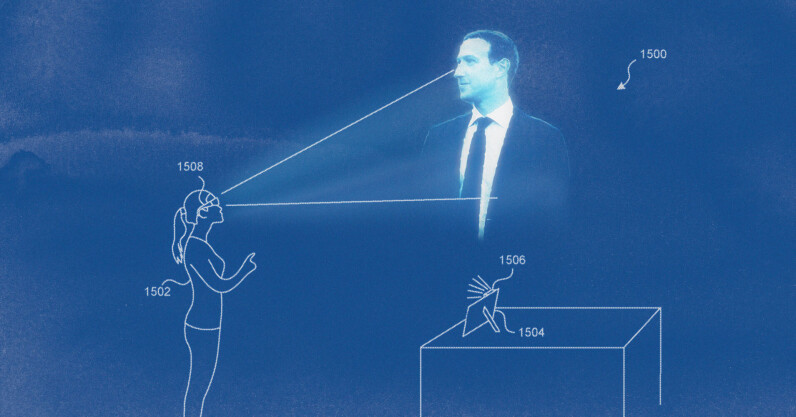
Reported essays reflect the great craft involved in blending fact, anecdote, and personal observation to tell a compelling story. These are the pieces we can’t stop thinking about, the ones we will forever recommend to friends, the ones that surprised and delighted us—all drawn from our vast and deep pool of editors’ picks. Enjoy!
The Great Forgetting
Summer Praetorius | Nautilus | December 19, 2022 | 3,975 words
This piece by paleoclimatologist Summer Praetorius, which is part memoir and part science writing, was published in mid-December last year in that overlooked period that made it too late to include in our Best of 2022 collection, yet technically ineligible for this one. But I’m making an exception. (As Praetorius notes about the Great Unconformity—the gap of a billion years of Earth’s unrecorded history between 1,600 and 600 million years ago—there’s much to be discovered about seemingly forgotten periods of time.) I’ve read many poignant climate stories on the melting of glaciers and the razing of ancient forests, but I keep returning to this one because of Praetorius’ vast understanding of the Earth’s history across hundreds of millions of years; she simplifies complex concepts about geological amnesia, resilience, and system collapse so they’re more accessible to a general reader. I love the beautiful way she describes the Earth’s memory, recorded in layers of sediment and held within its disappearing ice sheets, which she refers to as “the great brains of our planet.” But she also weaves a deeply personal account of her late brother Jebsen’s mental deterioration after a snowboarding accident, another example of a complex system pushed too far out of equilibrium to recover effectively. This parallel story helps to make the piece relatable on a more intimate scale. Recalling the ride home from the woods when she notices the first signs of Jebsen’s memory loss as he sat in the back seat, she realizes now that he was forever changed from that moment and never recovered. “I fixate on our immobility; on the lack of actions we took to assess the larger damages that may have been hiding beneath that hole in his memory,” she writes. It wasn’t that she and her mother didn’t care about his well-being, but perhaps they didn’t initially believe it was anything serious. As Praetorius shifts between her family’s story and scientific research, you can’t help but ask: How resilient is Earth? Are we seeing and acting on the warning signs? —CLR
The Ones We Sent Away
Jennifer Senior | The Atlantic | August 7, 2023 | 13,585 words
So many families, mine and likely yours, have things they just don’t talk about, experiences and events rooted in regret and shame, where everyone concerned wants to forget or remain silent. But does silence bring solace or does it ensure irreparable harm, perhaps greater than the pain of confronting the past? This is just one of the weighty themes Jennifer Senior considers in “The Ones We Sent Away,” a brilliant essay I have not stopped thinking about since reading it in August. At the heart of the piece is Senior’s aunt Adele, who was institutionalized in 1953 at 21 months old. Adele was diagnosed with microcephaly and removed from those who loved her the most in this world on the advice of medical doctors who meant well. This story is chiefly about loss and trauma, primarily the trauma Adele endured while institutionalized and the incalculable loss of not receiving enlightened care. Adele’s family suffered too, deprived of Adele’s lively spirit in their lives. With deep care and nuance, Senior examines the systemic and societal failures that deemed it best to separate Adele from her family. In writing this essay, she looks closely at the decision makers of the past and turns the microscope on herself: as a journalist writing about an aunt unable to give consent, Senior realized she faced an ethical dilemma not unlike the doctors who suggested Adele be institutionalized in 1952. She, like they, meant well. By sharing Adele’s story, Senior wants not just to avoid harm, but to do good, possibly for other families facing similar decisions today, possibly for anyone who sits in silence, afraid to face an unpleasant and painful past. Through Adele’s incredible story, Senior suggests that to do better as humans, we first need to be brave enough to talk about it. —KS
A Good Prospect
Nick Bowlin | The Drift | July 9, 2023 | 7,602 words
Here’s an endorsement: I am prone to ranting about Teslas not (only) because of the waste of space that is Elon Musk and the shoddy construction of his EVs, but also because of this essay. In March, writer Nick Bowlin attended an annual conference in Toronto, Ontario, where the “institutions that constitute the global metal-mining industry commiserate in the bad times and celebrate the good.” In a perverse twist, Bowlin found that 2023 is a decidedly good time for mining not in spite of climate change, but because of it. A world hungry for electric batteries, solar panels, and other essentials of a decarbonized economy means there is escalating demand for metals, and mining interests are seizing the moment to make over their image—and to make bank. “To stop global warming,” one conference speaker says, “you need us.” But boosting the profits of some of the world’s most notoriously exploitative concerns comes at a terrible cost: to the earth, to mine workers, to the inhabitants of metal-rich land. Bowlin doesn’t suggest that mining can’t be part of green solutions. Rather, his essay brilliantly illuminates the perils of trying to save the world by relying on the blunt tools and maximalist mindset of late-stage capitalism. —SD
The Horrors of Pompeii
Guy D. Middleton | Aeon | July 4, 2023 | 4,000 words
Reported essays cover a broad spectrum, with historical reporting being oft-overlooked. It’s a difficult skill: conjuring events from hundreds—or even thousands—of years ago is no mean feat. But when it works, a history piece is engaging and fascinating reportage. In this essay on ancient Pompeii for Aeon, Guy D. Middleton grabs attention with a piece of graffiti scrawled on the vestibule wall of a well-to-do house owned by two freedmen, the Vettii: “Eutychis, a Greek lass with sweet ways, 2 asses.” Explaining how “graffiti . . . comes not from the literature of the elite, or the inscriptions of the powerful, but from a wider cross-section of society, ” Middleton leads us into the bowels of Pompeii to try and discover who Eutychis was. Expect back-stabbing brothels, brutal slavery, and sexual abuse. The meaning of every word of the crude advertisement is examined, along with writings, paintings, and artifacts that add further insight into this grim world. (Particularly revealing is a lead collar inscribed: “This is a cheating whore! Seize her because she escaped from Bulla Regia.”) Through clever tools, rather than dumbing down, Middleton makes history accessible—and Eutychis can call out to us from nearly 2,000 years ago. —CW
In Search of Lost Time
Tom Vanderbilt | Harper’s Magazine | March 20, 2023 | 5,339 words
Despite the fact that I’m one of those clean-but-messy people, I also love precision. Exactitude. The idea of a constant. That spills over into a fascination with measurement in general. It’s not a hobby—I don’t collect rulers or, like, assemble Ikea shelves with a torque wrench—just an abiding curiosity. And it’s one that Tom Vanderbilt seems to share, judging from his quest in Harper’s to find the ground truth of the second. Like so much of his writing, he sets about answering a question (in this case, what drives clock time?) as genially as possible. Characters don’t just talk, they do so “with weary resignation” or “[nodding] excitedly”; they call statistical noise “jiggly wigglies.” That seasoning, Vanderbilt knows, becomes all the more crucial when the rest of the recipe comprises chewy concepts like dematerialization or the ephemeris second. Who wouldn’t get the tiniest thrill knowing that researchers had to travel to France to compare their kilograms to the platinum-iridium cylinder once deemed the “official” kilogram? Who’s not just a little bit awed by the idea that the official second doesn’t actally exist, but is essentially spit out by a nine-billion-step Rube Goldberg machine made of cesium atoms? It’s science writing that reads like a travelog: Look to your left and see the world’s smallest ruler! If you’re going to guide readers through the world of the abstract, you’ve gotta make the concrete part fun. —PR
You can also browse all of our year-end collections since 2011 in one place.




